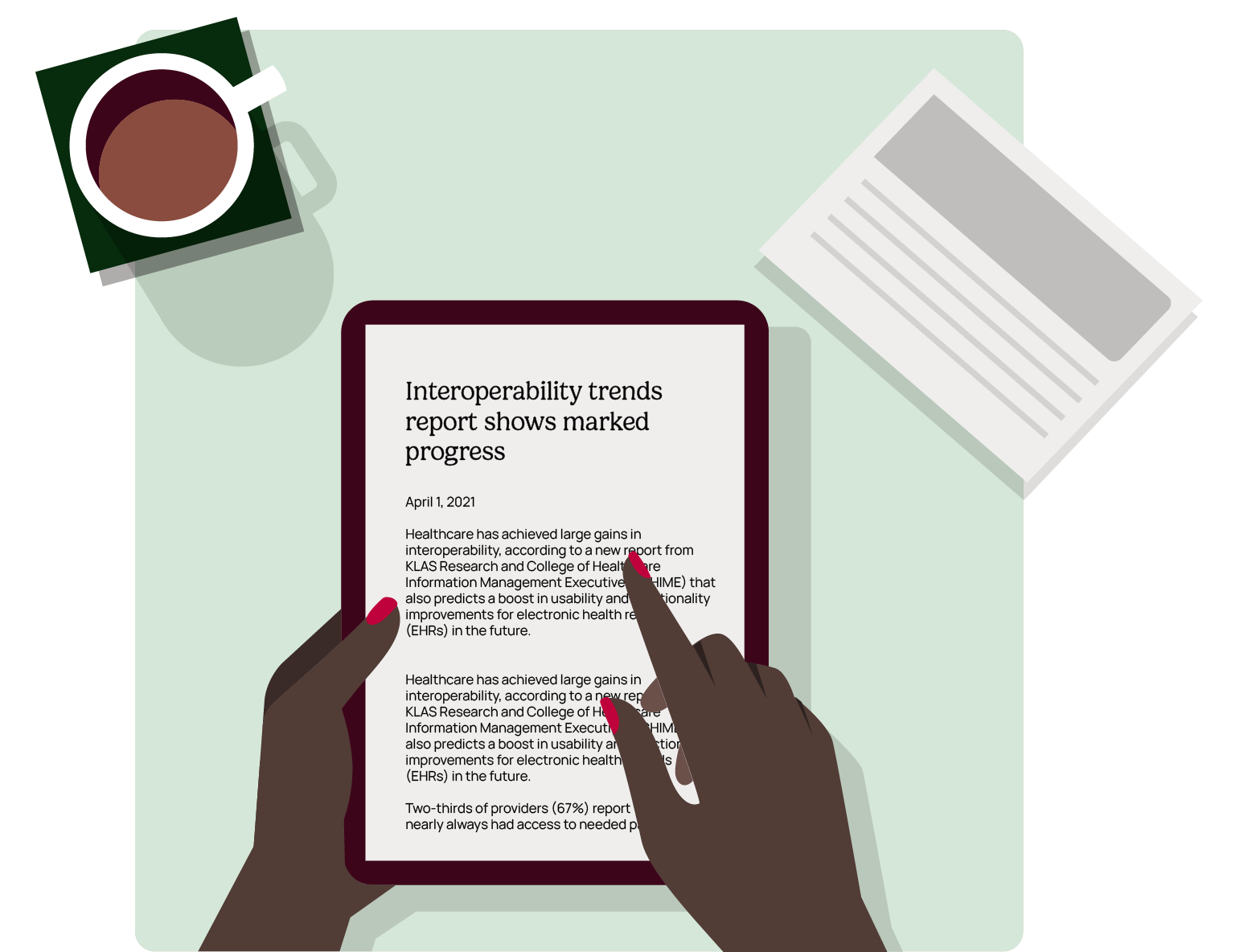April 1, 2021
Healthcare has achieved large gains in interoperability, according to a new report from KLAS Research and College of Healthcare Information Management Executives (CHIME) that also predicts a boost in usability and functionality improvements for electronic health records (EHRs) in the future.
Two-thirds of providers (67%) report they often or nearly always had access to needed patient records in 2020, compared to four years ago, when providers said they could reasonably access information from exchange partners on a different electronic health record only 28% of the time. The last study of this kind was conducted in 2017.
EHR vendors and provider organizations still need to partner effectively before data exchange can truly enhance patient care, however. About half of the provider organizations say they are not getting the vendor support they need to advance interoperability in healthcare with cost being the most mentioned barrier to success.
Buying the latest features and functionality, paying for new interfaces and connections, and the cost to keep up system customization are frequent complaints, the report found. When cost is not prohibitive, it is a lack of deep understanding of provider workflows and organizational needs and a lack of technical readiness that prevents vendors from fully supporting customers.
“For digital health to reach its full potential, we need to be able to safely and securely exchange information across the healthcare ecosystem,” CHIME President and CEO Russell P. Branzell, said in a statement.
“Interoperability is the linchpin. With the Cures Act and other federal initiatives promoting data sharing, we should see even more gains that ultimately will improve patient care. As is evident in the survey results, great strides have been made resulting in remarkable improvements. This required hard work for all parties involved and they should be congratulated on their collective efforts,” Branzell continued.
KLAS has measured interoperability since 2015, charting the industry’s steady progress in some areas and leaps forward in others. To read the full 2021 study, click here.





